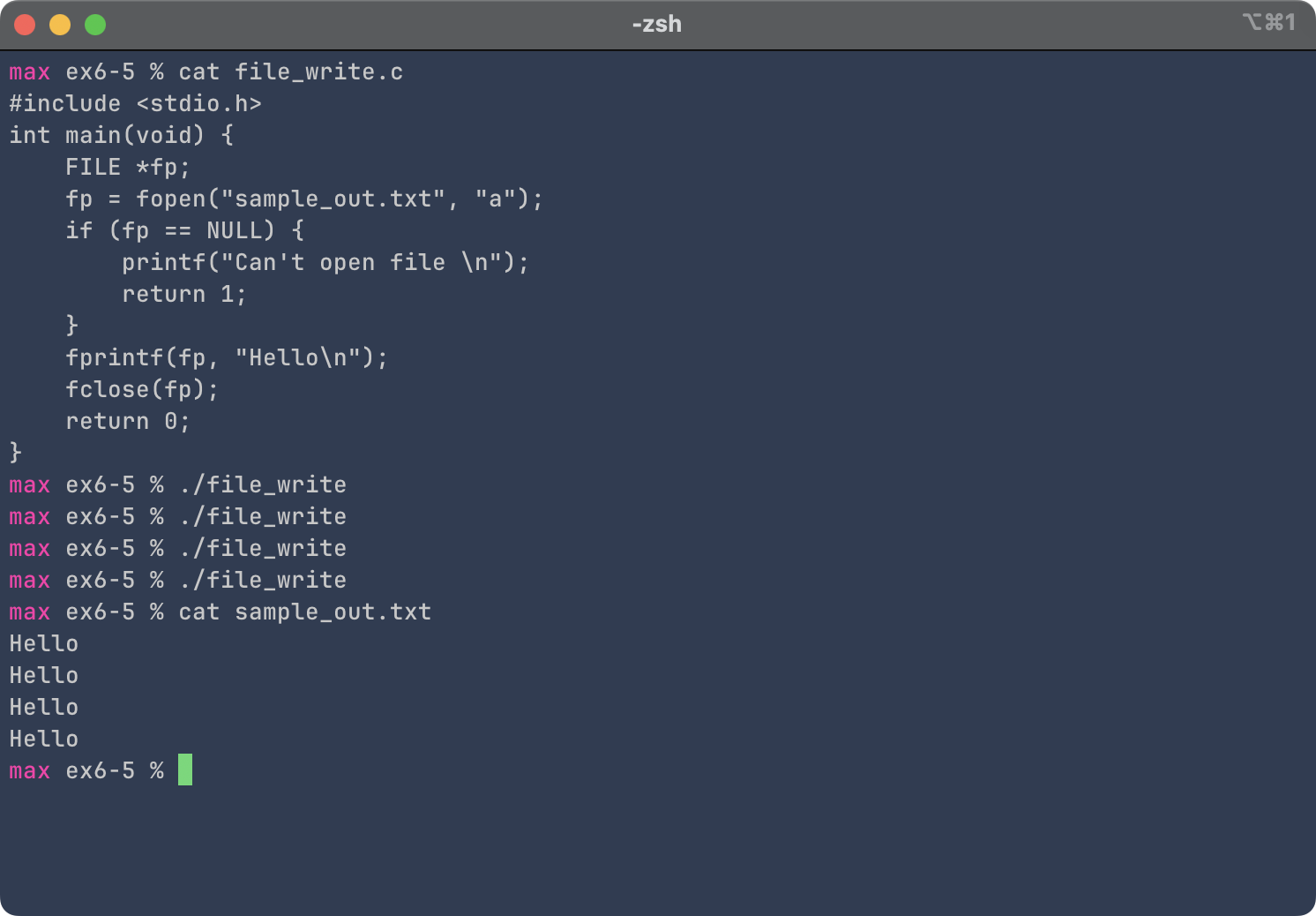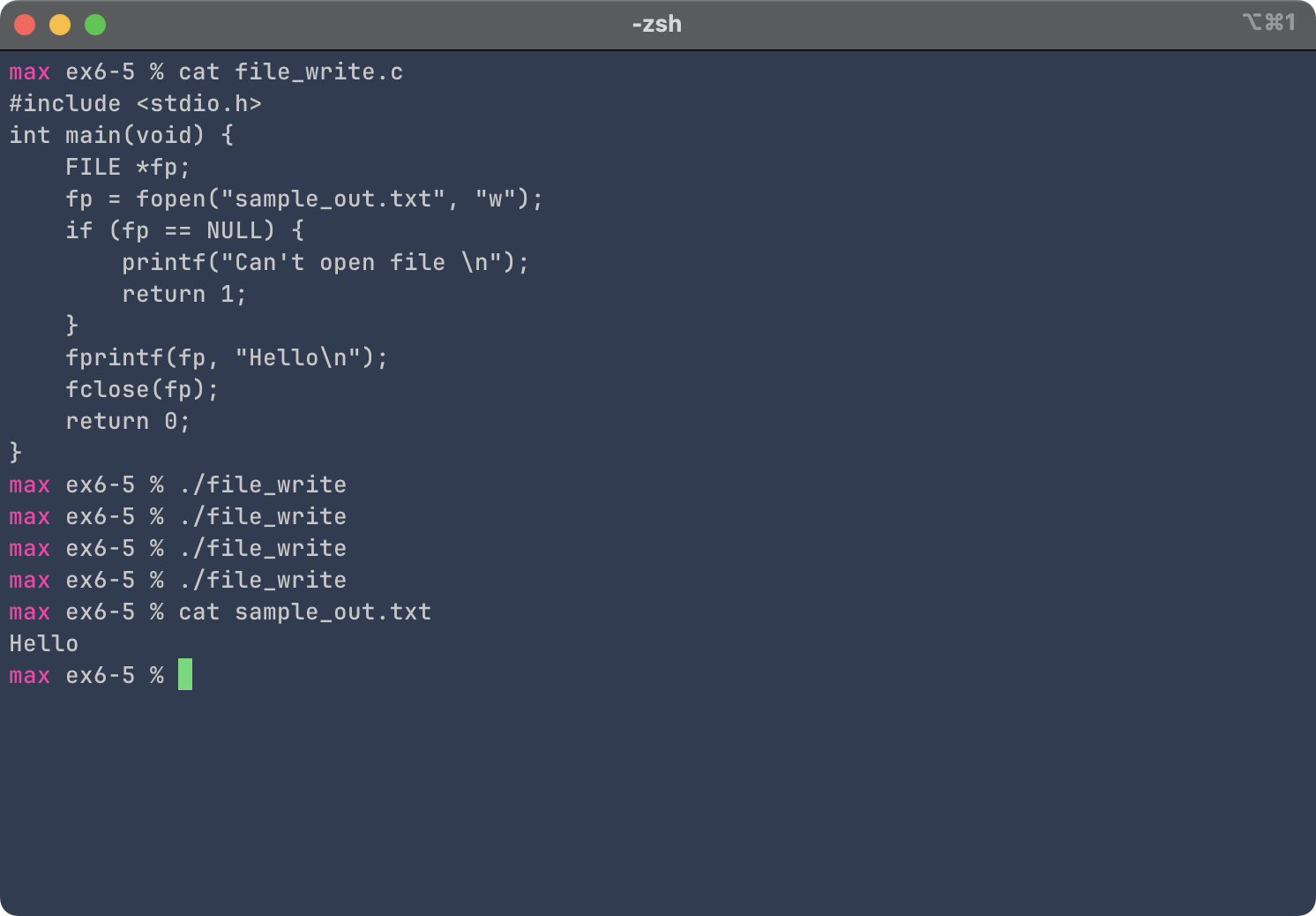Exercise 6-5: file_write.c
Maximilian Fernaldy - C2TB1702
#include <stdio.h>
int main(void) {
// create file pointer
FILE *fp;
fp = fopen("sample_out.txt", "a");
// handle opening error
if (fp == NULL) {
printf("Can't open file \n");
return 1;
}
// print formatted string to file
fprintf(fp, "Hello\n");
fclose(fp);
return 0;
}
As previously explained in report 6-4, the file access flags determine how data is written to the file. If we use "a" like above, new data will be written to the end of the file.

It needs to be noted that fprintf(), just like the behavior of printf(), does not print new lines automatically at the end of the string (unlike printf() in Python, for instance). We need to append the newline character manually. This is very much intentional, and allows us to write in the same line if we'd like.
In comparison, opening the file in write mode ("w") destroys previous data and rewrites the string from scratch in the file. As a result, however many times we run the program, there will only be one "Hello" followed by a blank line in the text file (the blank line is not visible in the cat output because it is used to carriage-return the shell prompt).
